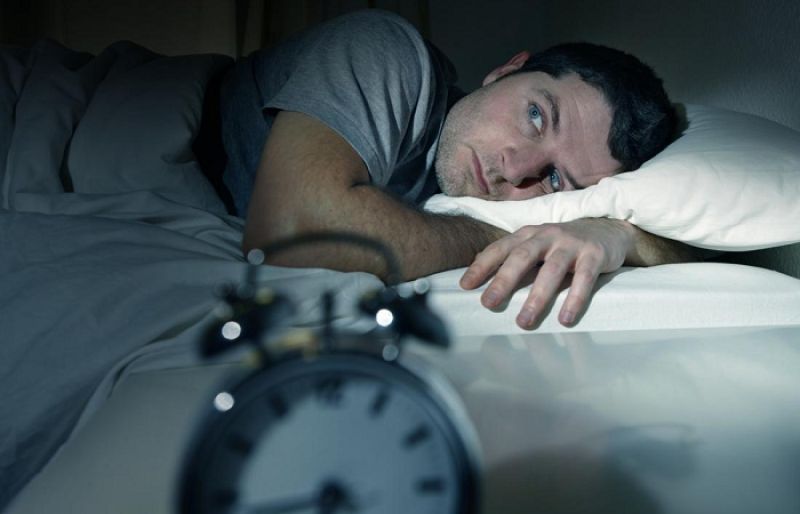If you’ve ever spent a night tossing and turning, you already know how you’ll feel the next day — tired, cranky, and out of sorts. But missing out on the recommended 7 to 9 hours of shut-eye nightly does more than make you feel groggy and grumpy.
Effects on the body
Central nervous system
Your central nervous system is the main information highway of your body. Sleep is necessary to keep it functioning properly, but chronic insomnia can disrupt how your body usually sends and processes information.
During sleep, pathways form between nerve cells (neurons) in your brain that help you remember new information you’ve learned. Sleep deprivation leaves your brain exhausted, so it can’t perform its duties as well.
You may also find it more difficult to concentrate or learn new things. The signals your body sends may also be delayed, decreasing your coordination and increasing your risk for accidents.
Sleep deprivation also negatively affects your mental abilities and emotional state. You may feel more impatient or prone to mood swings. It can also compromise decision-making processes and creativity.
If sleep deprivation continues long enough, you could start having hallucinations — seeing or hearing things that aren’t really there. A lack of sleep can also trigger mania in people who have bipolar mood disorder.
You may also end up experiencing microsleep during the day. During these episodes, you’ll fall asleep for a few to several seconds without realizing it.
Microsleep is out of your control and can be extremely dangerous if you’re driving. It can also make you more prone to injury if you operate heavy machinery at work and have a microsleep episode.
Immune system
While you sleep, your immune system produces protective, infection-fighting substances like antibodies and cytokines. It uses these substances to combat foreign invaders such as bacteria and viruses.
Certain cytokines also help you to sleep, giving your immune system more efficiency to defend your body against illness.
Sleep deprivation prevents your immune system from building up its forces. If you don’t get enough sleep, your body may not be able to fend off invaders, and it may also take you longer to recover from illness.
Long-term sleep deprivation also increases your risk for chronic conditions, such as diabetes mellitus and heart disease.
Respiratory system
The relationship between sleep and the respiratory system goes both ways. A nighttime breathing disorder called obstructive sleep apnea (OSA) can interrupt your sleep and lower sleep quality.
As you wake up throughout the night, this can cause sleep deprivation, which leaves you more vulnerable to respiratory infections like the common cold and flu. Sleep deprivation can also make existing respiratory diseases worse, such as chronic lung illness.
Digestive system
Along with eating too much and not exercising, sleep deprivation is another risk factor for becoming overweight and obese. Sleep affects the levels of two hormones, leptin and ghrelin, which control feelings of hunger and fullness.
Leptin tells your brain that you’ve had enough to eat. Without enough sleep, your brain reduces leptin and raises ghrelin, which is an appetite stimulant. The flux of these hormones could explain nighttime snacking or why someone may overeat later in the night.
A lack of sleep can also make you feel too tired to exercise. Over time, reduced physical activity can make you gain weight because you’re not burning enough calories and not building muscle mass.
Sleep deprivation also causes your body to release less insulin after you eat. Insulin helps to reduce your blood sugar (glucose) level.
Sleep deprivation also lowers the body’s tolerance for glucose and is associated with insulin resistance. These disruptions can lead to diabetes mellitus and obesity.
Cardiovascular system
Sleep affects processes that keep your heart and blood vessels healthy, including those that affect your blood sugar, blood pressure, and inflammation levels. It also plays a vital role in your body’s ability to heal and repair the blood vessels and heart.
People who don’t sleep enough are more likely to get cardiovascular disease. One analysis linked insomnia to an increased risk of heart attack and stroke.
Endocrine system
Hormone production is dependent on your sleep. For testosterone production, you need at least 3 hours of uninterrupted sleep, which is about the time of your first R.E.M. episode. Waking up throughout the night could affect hormone production.
This interruption can also affect growth hormone production, especially in children and adolescents. These hormones help the body build muscle mass and repair cells and tissues, in addition to other growth functions.
The pituitary gland releases growth hormone throughout each day, but adequate sleep and exercise also help the release of this hormone.
Causes of sleep deprivation
In a nutshell, sleep deprivation is caused by a consistent lack of sleep or reduced quality of sleep. Getting less than 7 hours of sleep on a regular basis can eventually lead to health consequences that affect your entire body. This may also be caused by an underlying sleep disorder.
Your body needs sleep, just as it needs air and food to function at its best. During sleep, your body heals itself and restores its chemical balance. Your brain forges new thought connections and helps memory retention.
Without enough sleep, your brain and body systems won’t function optimally. It can also dramatically lower your quality of life.
A review of studiesTrusted Source found that sleeping too little at night increases the risk of early death.
Stimulants, such as caffeine, aren’t enough to override your body’s profound need for sleep. In fact, these can make sleep deprivation worse by making it harder to fall asleep at night.
This, in turn, may lead to a cycle of nighttime insomnia followed by daytime caffeine consumption to combat the tiredness caused by the lost hours of shut-eye.
Behind the scenes, chronic sleep deprivation can interfere with your body’s internal systems and cause more than just the initial signs and symptoms listed above.


